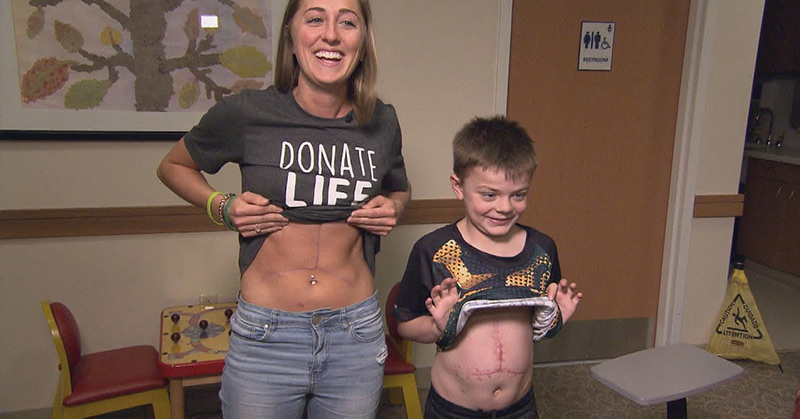Since the dawn of time, people have been categorised into different groups. This has been conducted in socio-economic and political circles, along with discussing gender, sexuality, and physical appearance.
You need look no further than your tax bracket or clothes size as evidence of this.
In pop culture, these categorisations have existed alongside society all the way from Karl Marx's Communist Manifesto to Tina Fey's cult classic Mean Girls. There are the proletariat and the bourgeoisie fighting over the means of production. There's the plastics, the 'cool Asians', the band geeks, and those so insignificant that they don't warrant a label. Those individuals actually luck out, not that it feels like it at the time.
Watch how labels merge together and eventually form identities.
If you weren't the 'funny one' when you were first christened with that title, you sure will be a year later. Ah, the self-fulfilling prophecy of identity labels.
This is because one day you'll be minding your own business and you will have somehow become The Funny Girl. The strong, fun, resilient 'water off my back' kinda gal. You know, the type that probably doesn't really exist in the way people think she does?
Well, dear readers – that's me. It's likely also a few of you too.
And it's really all well and good to be The Funny One when things are going your way. When you've got a couple of great jokes in your roster for Game Night, or when you're mingling with new people at a party and you can wow them with your wit and charm.
The issue is that the general appeal of The Funny One is that we are oddballs. Weird and wonderful with a type of personality and humour that shouldn't work, but does. People view this as being a certain type of effortless frivolity. It's not – nothing is effortless. We have to work at being seen as free-living, spirited, and fun.
What's wrong with being funny?
We're the band-aid that people can put on their misery if they hang out with us for an afternoon.
That's fun, that's great most of the time.
But there are times when we don't have the mental space to push our own issues out of the way to make other people smile. Sometimes our whole personality can feel contrived, fake, or garish. If we are grimacing just to get you to laugh, even that effort can seem silly and weird or inauthentic.
Because of the performative aspect of humour, we may also find that life itself is a construction (I mean, it is, tbh).
We may feel as though the image other people have of us in their mind is entirely fake. Artificial. A lie.
Maybe this is just a case of Imposter Syndrome. Many people suffer from it in which their accomplishments are constantly self-doubted or dismissed as a façade. However, it's also because our friends get used to us being around, being available, and being up for a laugh. But sometimes we can be reduced to merely that: a laugh. Rather than a human being with complex emotions and thoughts and feelings that aren't always given airtime or adequate attention by ourselves or others.
In short: The Funny One isn't really allowed to be sad.
Why?
Well, it depends who you ask.
If you ask the Funny One themselves, they will likely say that it would feel like a burden to express emotions to people who got used to us seemingly not having any.
If you ask the group of friends, they might be vaguely indignant that you are finally cashing in on the one way emotional downloading that you have absorbed over the years. To some, the reminder that friendship is a two-way street is a tough pill to swallow.
In reality, sometimes it's just a matter of the people around you simply not knowing how to negotiate your emotions. In fairness, I use this excuse as a reason not to share with someone that I know would actually support me.
But no, I am the strong friend who suffers in silence.
Maybe my bed was made when I was first dubbed 'The Funny One'. Or maybe I dug my own grave. Either way, I'm lying down in it.
However, there are ways to communicate that we're struggling, and it's never too late to start expressing ourselves to those that care about us. Even the small steps matter.
I once climbed Skiddaw mountain in the Lake District in the UK, and was continually horrified at how unfit and slow I was. How hard it was to climb all that way, convinced that I was the least fit person on earth. And yet, when I got to the top, huffing, and puffing, I finally turned around and realised that my friends had actually stopped walking ages ago.
We're capable of enduring more than we know. But that doesn't mean that we necessarily should.
It means that we owe it to ourselves to establish needs and wants to our friends and family if we feel that we aren't being supported. They may be surprised, or they may have been expecting that conversation. Whatever the case, you can clear the air. Being able to talk about your feelings is a supremely useful tool to have in the present and the future. It's never too late.
Being The Funny Friend helped me to find my place in school and society on the many occasions that I didn't feel I had one.
It definitely served it's purpose, but I wonder now that it isn't time to put that one to bed.
We're all complex individuals. We all suffer, feel, and think differently, and we must appreciate this difference rather than use it as an excuse to further categorise ourselves.
Yours, for now,
The Funny One.



